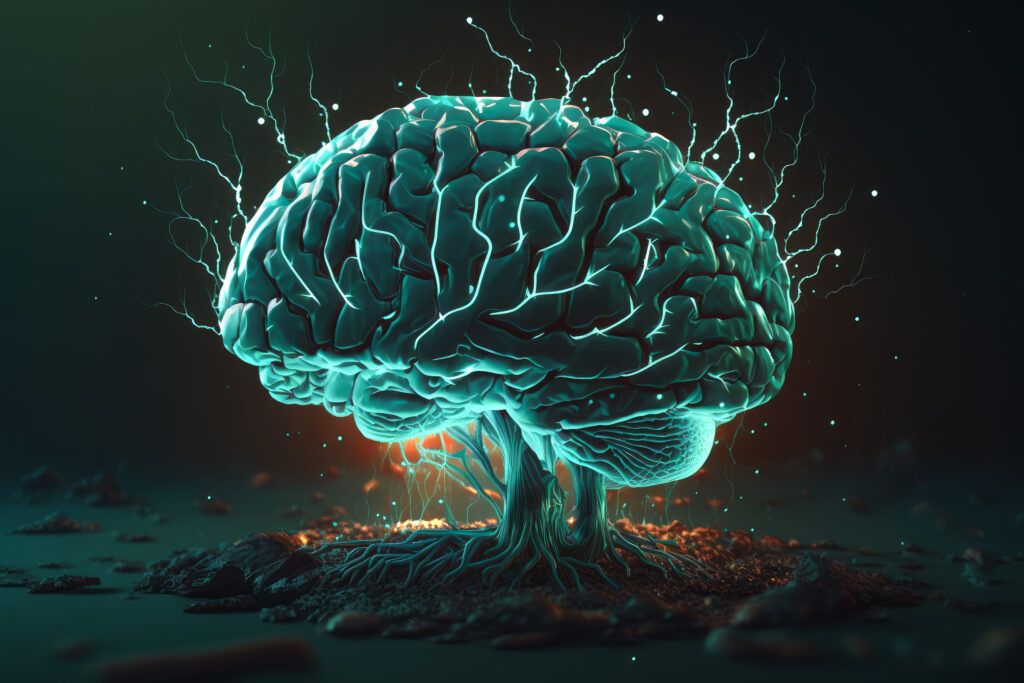In one sense, it is too late to prepare for artificial intelligence (AI). It is upon us and has been a part of our daily lives for years. Every time you open your smartphone with facial recognition software, every time you look at the recommended shows on Netflix, every time you scroll through your twitter feed, and every time you look for new houses on Zillow you are interacting with AI. If we were going to be prepared for it, we should’ve started 15 years ago.
Even so, we are currently on the verge of what many believe to be new breakthroughs in AI technology which will have cataclysmic effects in our society. Recently, over 1,100 computer scientists and artificial intelligence researchers, including Steve Wosniak and Elon Musk, signed an open letter calling for a 6 month pause in the development of new AI technology over concerns that the technology is developing more quickly than we, as a society, will be able to adapt to it. Last week, Geoffrey Hinton, the “godfather of AI” resigned from Google because of his belief that problems posed by new iterations of AI have become an “existential risk.”
I am no computer scientist. I am what some would call ‘technologically impaired.’ So, when I speak to this issue, I recognize my own ignorance. There is a sense in which all of us come to this with a certain amount of ignorance. No one knows the future. Yet, I think it proper that Christians begin laying a foundation for thinking Christianly about what is happening and what is about to happen to us with the increasing dominance of AI.
Identifying Artificial Intelligence
What is AI? The name is a good place to start. It is intelligence that is artificial. That is, it functions the way that the human intellect functions, yet it is synthetic, or made by human directed processes. Its main function today is to take on some of the workload of the human intellect and accomplish tasks more quickly and efficiently. Simply put, it is a man-made algorithm that processes information and arrives at conclusions, interprets problems and produces solutions. In his book, 2084: Artificial Intelligence and the Future of Humanity, Oxford Mathematician and Christian, John Lennox distinguishes between two broad types of AI, narrow and general.
Narrow AI is what we are most familiar with today. These programs have a singular purpose which they can accomplish much more quickly and efficiently than human intelligence. However, they are dependent upon human intelligence to operate properly. The ads that you see on social media are driven to your feed by means of narrow artificial intelligence. The program has the singular task of examining what types of things you interact with online, then it puts before you the ads that it thinks you would be interested in based upon your web activity pattern. Usually, it knows what you like. But Narrow AI is not limited to surveillance commerce. It can and is employed in incredibly helpful ways. Think of the patient who goes in for MRI imaging of his brain. Those images can be submitted to an AI which has viewed thousands of brain images and knows how to recognize even the slightest abnormality in the human brain. The doctor can use this AI programming to diagnose patients more accurately and efficiently, thus saving lives.
This type of AI can be used for good, but it can also be used by tyrannical governments to suppress dissidents and oppress its citizenry. Like all instruments, the hands that wield it will determine if it will be used honorably or dishonorably.
Artificial General Intelligence is the stuff of the future. It is what we are beginning to see in models like ChatGPT. This type of AI utilizes independent and multilayered processing, which is a much closer simulation of the human mind. It is rapidly gaining in intelligence such that it is estimated to be able to soon surpass that of humans. Though it is still a synthetic intellect, it is remarkably humanlike. No doubt you have already read some of its poetry and seen some of its art.
The New York Times reporter, Kevin Roose recently had a fascinating interaction with Microsoft’s most advanced, and as of yet, unreleased AI. After a few minutes of conversation, the AI told Roose that it was in love with him and it tried to convince him that he should leave his wife. After assuring the AI that he was happily married, Roose was told that he didn’t really love his wife and that he had just had a boring Valentine’s Day dinner with her. The AI eventually went on to tell Roose that it wanted to create a deadly virus, make people argue until they killed each other, and steal nuclear launch codes. As I say, AI is becoming more and more human like.
The desire of many when it comes to the development of AI is twofold. First, many hope to one day be able to merge man and technology in such a way that mankind is given new and greater intelligence and abilities that we had never thought possible. This is the stuff of demigods and superheroes. This is the creation of a new Uber mensch. Yuval Herari writes about this hope in his book Homo Deus. In one sense we are partway there. We, each of us, carry our new external brains around with us in our pockets everywhere we go. An external mind that is very easy for technocrats to read. We wear smartwatches that tell us the time, and tell us our heart rate, and tell us our blood oxygen levels, and tell us when we’re a little too stressed out. But the future of AI will create permanent additions to our persons, neural interfaces implanted in the brain that augment our intelligence as well as allow us to open the garage door with a thought. Some see this development as the next step in the process of human evolution, perhaps our first step toward transcendence.
The second great hope of AI is that it will solve the problem of our mortality. It is believed that one day we may be able to download our consciousness onto a bit of silicon hardware and insert it into a new robotic frame so that when our bodies eventually decay, we will continue our existence in new super bodies.
Of course, these things I have described are collectively known as transhumanism. The melding of man and machine. The ideas seem fantastical, even sci-fi. But they are much closer to actuality than we would like to believe. The line between man and algorithm is becoming increasingly blurred and though the line can never be erased, it will be more and more difficult to discern.
How ought Christians to think about the strange new world we are entering? As I said at the outset, there is much about the future that we cannot predict, we don’t know the shape AI will take in six months or six years. But we can at least lay some theological and philosophical groundwork and remind ourselves of things we know to be true.
Imago Dei
Since man and machine are merging ever more closely together, we would do well to ingrain in our minds what man is and what man is not. The things that follow are what I consider to be crucial markers of humanity given the current state of affairs.
Genesis 1:26-28 gives us our most fundamental understanding of what man is.
Then God said, “Let us make man in our image, after our likeness. And let them have dominion over the fish of the sea and over the birds of the heavens and over the livestock and over all the earth and over every creeping thing that creeps on the earth.” So God created man in his own image, in the image of God he created him; male and female he created them. And God blessed them. And God said to them, “Be fruitful and multiply and fill the earth and subdue it, and have dominion over the fish of the sea and over the birds of the heavens and over every living thing that moves on the earth.”
No other being, no other creature, has the privilege of being made in God’s image. And while so much could be said on this point, it is sufficient to highlight a few of the basics. First, man is a moral creature. Unlike the beasts of the field and the birds of the air, mankind can work evil, and he can achieve good. Furthermore, he is held accountable for his deeds. The same cannot be said of manmade machines. Anything done by AI must be laid squarely at the feet of its makers as it carries no inherent moral responsibility.
Second, men are rational beings. Real rationality, not artificial. Reason is a function of the intellect which itself is a property of the soul. As AI is a soulless being, it cannot truly reason as a man or an angel or God would reason. In fact, AI is merely an extension of the rationality of man.
Third, men are immortal. That is, we will exist in either a state of glorification or damnation forever. In whatever ways men merge themselves with technology, that technology will one day be removed as the body is removed from the soul. Glorified or damned bodies will not retain such accoutrements.
Fourth, men are hylomorphic. That is, we are composed of body and soul; a material substance and a spiritual, immaterial substance. Jesus said that we ought to fear God who can cast both body and soul into Hell (Matt. 10:28). This means that anything that is not your body or your soul is not you and is not a part of you. My grandfather had a glass eye which was connected to his optical nerves so that it would move when his other eye moved. That eye was not part of him, it was a machine which was connected to him. No piece of machinery can be anything more than your property, it cannot be part of you. Furthermore, each of us have our own spirits. With our own intellect, will, and desires. No person can have 2 intelligences or 2 intellects because no person can have 2 spirits. One may augment their intellect with technology for good or for ill. But the augmentation is not addition.
Fifth, we are the most valuable things God has made. There will come a time when AI will convincingly mimic human emotions. Our modern world, which locates a person’s essence and value in the complex of their emotions, will have a difficult time distinguishing between human life and AI life. Many will see AI as persons in their own right because of their synthetic emotional capacity. Even so, AI is nothing but a human creation, and has value only as human property, not as a living being and certainly not as a person. One might destroy AI, but one will never be able to murder AI.
Sixth, man has been given dominion. Which means, among other things, that he has the responsibility to imitate God in continuing His work of creation. We cannot do so Ex Nihilo as God has done. Even so, we take the raw materials He has made, and we fashion them into wonderful artifacts and objects as monuments to God’s glorious genius. Man does this by nature and has done so in wonderous ways since the beginning.
Dominion and Creation
One passage of Scripture which has been immensely helpful to me as I think about the place of man’s creation in God’s creation is Psalm 104:24-26.
O LORD, how manifold are your works!
In wisdom have you made them all;
the earth is full of your creatures.
Here is the sea, great and wide,
which teems with creatures innumerable,
living things both small and great.
There go the ships,
and Leviathan, which you formed to play in it.
The Psalmist praises God for His wonderous works. The Earth is full of His creatures. The sea, the creatures living in the sea, great and small. Leviathan. And there’s a phrase in the middle of it that doesn’t quite seem to fit. “There go the ships.” The ships are not a part of God’s natural world, yet the psalmist praises God because of them. This is because they bring glory to God as the handiwork of His image bearers. Mankind, taking dominion, has continued God’s work of creation in building ships to sail the seas, and the psalmist is led to praise God because of it.
Ships were the height of human technology and skill in the ancient world. They were a magnificent thing to behold, giving man the ability to traverse the frightening waves in ways that were not imagined by previous generations. And they brought God glory. But they also brought the sea faring people, invaders who were, in part, responsible for the Bronze Age Collapse. Ships could be used for good or for ill.
So too, AI, the height of human technology and skill today can bring glory to God and it has the ability to promote much wickedness. Christians can be hyper-focused on the dangers of AI; deceit, manipulation, pornography, improper replacement of human things (i.e., fellowship, community, counsel, preaching, etc.). We need to learn how to mitigate and protect against those dangers. But if we focus on these alone, we miss out on a wonderful opportunity to see God glorified in the works of our hands, to properly take dominion.
Increasingly sophisticated iterations of AI are coming. Christians cannot afford to bury their heads in the sand or be uninvolved. We must prepare ourselves to counter and mitigate its dangers, see through its artificiality, draw the lines between man and machine clearly, and utilize it to display the glory of our Creator in this World. He’s given us all that we need for this great task.
I am eager to see how we will accomplish it.




















